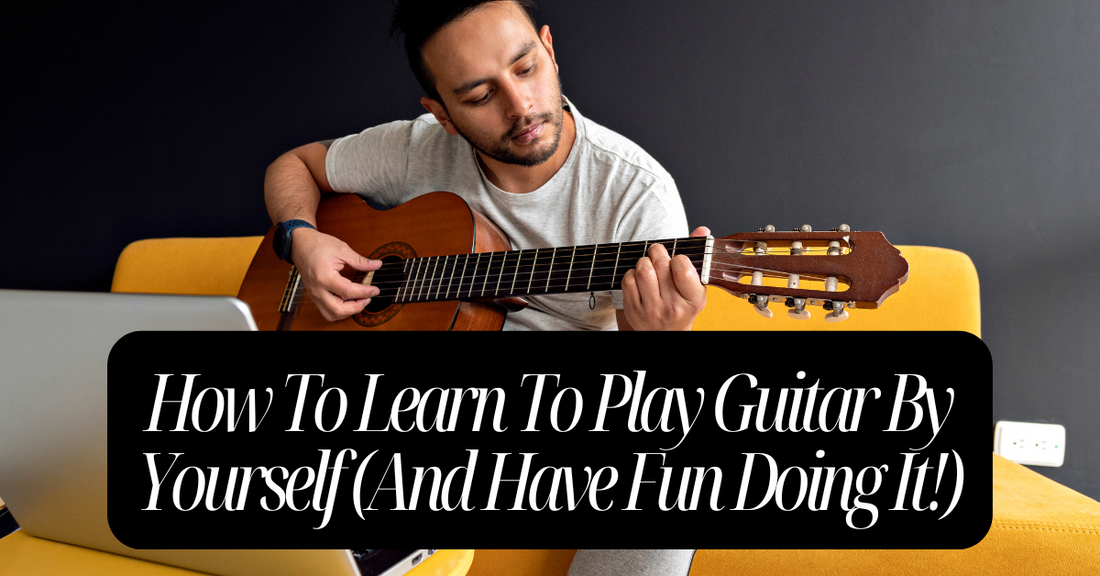
How To Learn To Play Guitar By Yourself (And Have Fun Doing It!)
Share
Learning guitar on your own is entirely possible, but it takes a bit of strategy and patience. Here’s my four-step method for beginners wanting to get started, stay motivated, and make real progress.
Step 1: Narrow Your Focus
First things first: what do you want to learn? Start by narrowing down your focus. Do you want to strum chords and write your own songs? Master some cover songs? Pick up some cool riffs?
The beauty of guitar is that there’s always more to learn, no matter your level. Even the world’s best guitarists keep learning. But if your goal right now is to play a favorite song, let’s make that your starting point.
Step 2: Create a Structured Practice Plan
This step is essential: structure your practice to keep moving forward. Here’s a simple 30-minute-a-day practice routine you can follow:
- First 2 minutes: Stretch your fingers.
- Next 8 minutes:Practice scales. Find a short YouTube video on basic guitar scales, save it, and use it at the start of every practice session. This warms up your hands and trains your ear.
- Final 20 minutes: Work on a song of your choice. Say you want to learn *Tennessee Whiskey* by Chris Stapleton. Head to Ultimate-Guitar.com (or a similar site) to grab the chords. Then, break the song into sections—start with the first verse or even the first two lines. Practice the strumming pattern, rhythm, and hand positions until it feels natural.
Remember, a focused practice plan helps you stay consistent and makes learning less overwhelming.
Step 3: Be Patient with Yourself
Progress comes from slow, focused practice. Rushing can lead to bad habits, so take it slow. If you’re making mistakes, slow down even more until each movement feels right. Going slow is actually the fastest way to improve. Be patient with yourself, and you’ll see real growth over time.
Step 4: Keep It Fun
Learning guitar should be fun! Pick songs or techniques that excite you. If you’re not ready to dive into music theory, that’s okay—focus on playing and enjoying the process. Keeping things fun and engaging will help you stay motivated and consistent.
A heads-up: your fingers will probably hurt in the beginning. This is normal and part of building up calluses and finger strength. Finger exercises before each practice session can help.
Happy practicing!
Sign up below for my free guide on how to sing, play, guitar, and write songs with 15 minutes of your time a day and also get free guided affirmation journal made specifically for singers/musicians.
https://mailchi.mp/creators-
Jay Koostix,
Singer Songwriter
Founder of The Creator's Arena
